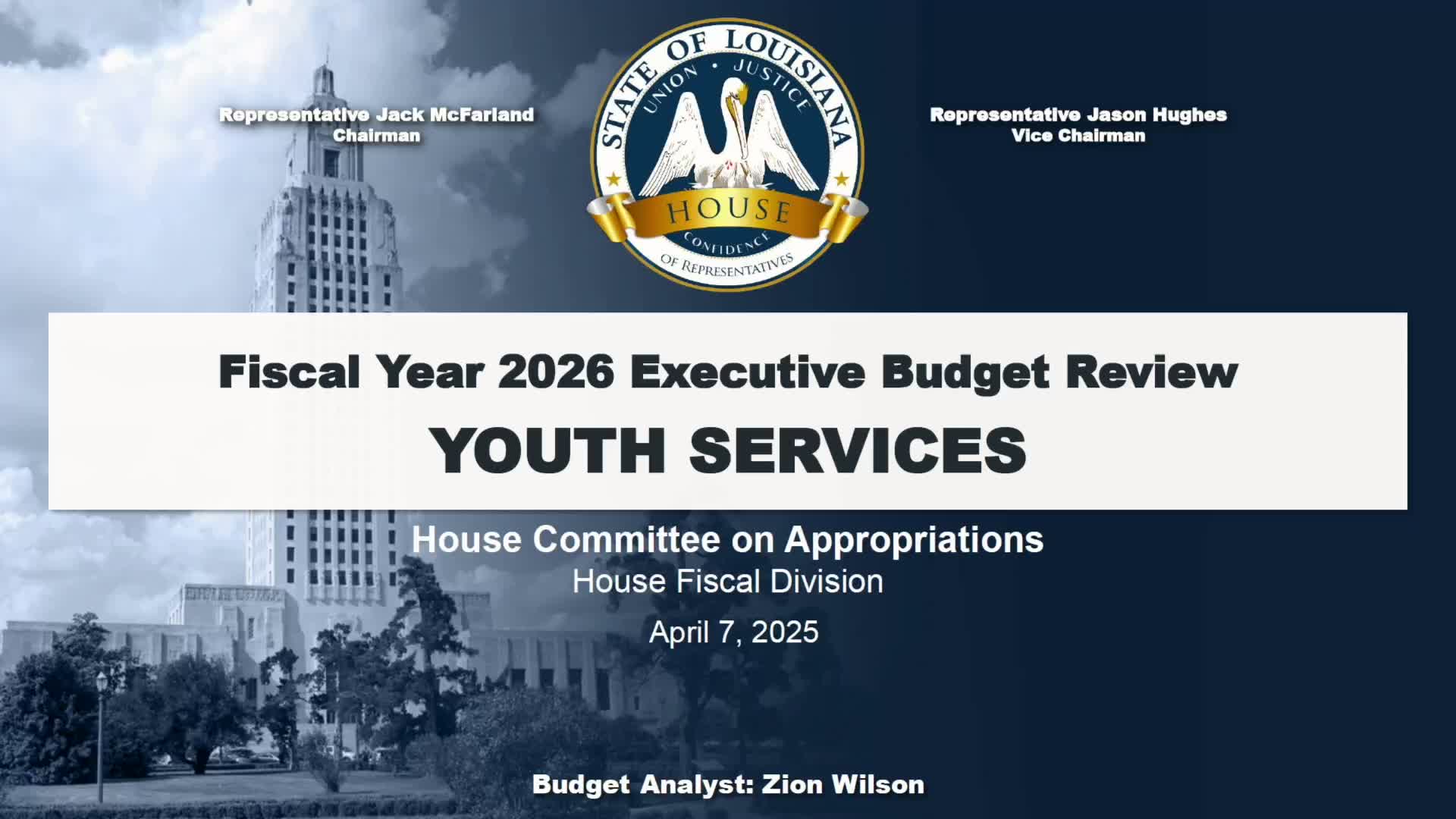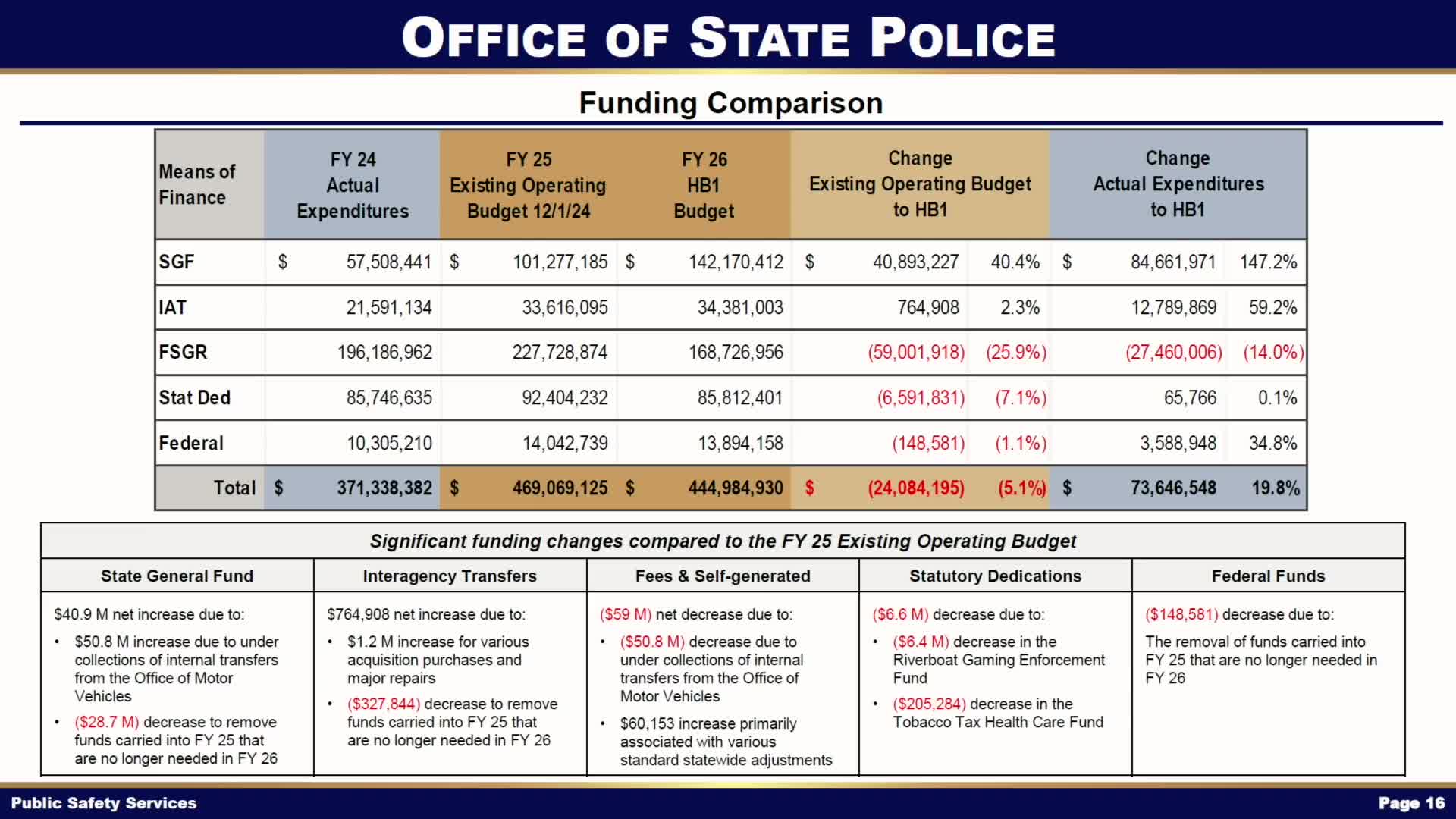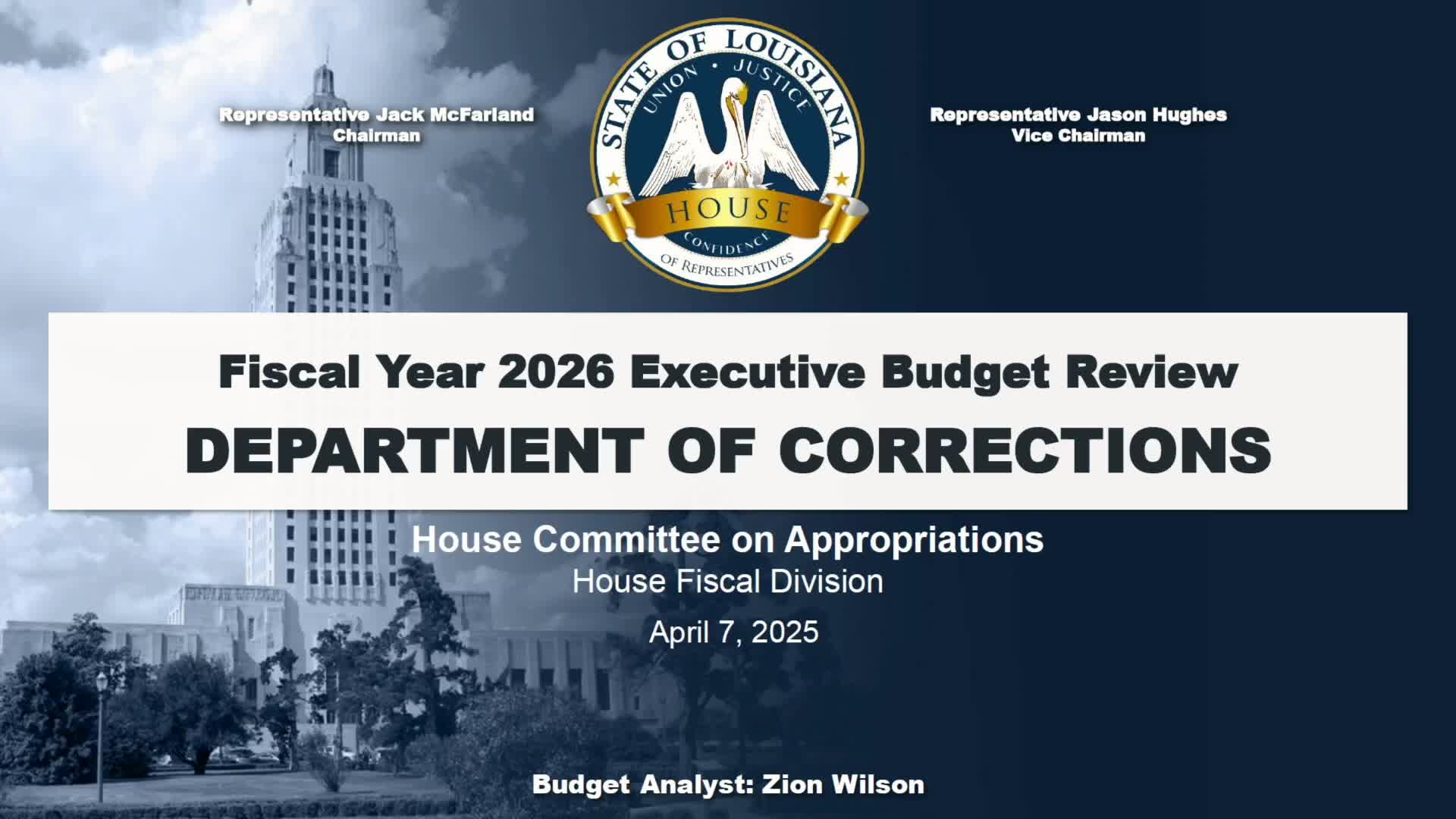Article not found
This article is no longer available. But don't worry—we've gathered other articles that discuss the same topic.

Appropriations hears plan to reopen Jensen as juvenile reception center; OJJ seeks 77 staff and $15.4 million operational funding

OMV system outages, Real ID deadline and modernization plan draw scrutiny at appropriations hearing

State Police face multimillion‑dollar shortfall after OMV fee changes; lawmakers press for troop‑by‑troop impact

